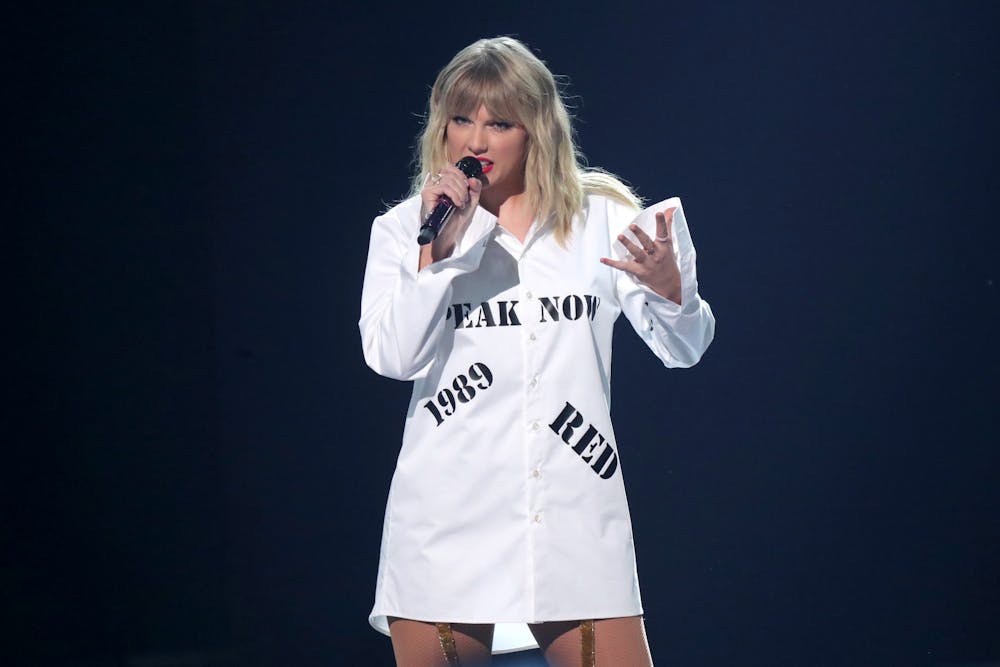I've never seen a case of people missing the point as badly as the rise of "stan culture." For the uninitiated, "Stan" is a 2000 song from Eminem, which depicts the titular character having an unhealthy obsession with a fictionalized Eminem, to the extent that Stan kills his pregnant girlfriend and himself. "Stan" was used to describe diehard fans of a given celebrity, as the song told a tale of a fan whose devotion led to their downfall. But now it's worn as a badge of pride by said fans.
These fans make up what is known as stan culture — people who take pride in their feverish devotion to any individual celebrity or musical group. Some big examples would be fans of the K-pop band BTS, singer Ariana Grande or rapper Nicki Minaj. Particularly devoted fans of a given performer are nothing new — there's a reason why many artists are able to sell out entire stadiums or venues for concerts. But the extent to which any fanbase would go for their respective celebrity has never been so extreme as it is today.
These stans have been known to potentially harass people and drive opposing celebrities off of social media for criticizing their favorite idols. Yet, as is the nature of much of the internet, there's a layer of deniability and anonymity granted to these fans. Twitter may be a public forum, but it sometimes operates using fake names. It's also difficult to quantify how many of these fans behave like this, meaning that any singular stan can deny the actions of another while not actively preventing this harassment.
Still, there's not much that can be done about them. It isn't so much a definitive group of people but a descriptor of a behavior. Think Beyonce's "Beyhive," Taylor Swift's "Swifties" or Nicki Minaj's "Barbz." All of them center around different artists but perform the same behavior — that of "Stan."
I wonder a lot about Stan. Though it is fiction, the story of a man's obsession with a person he doesn't know is sadly extremely true to life. The song "Stan" ends with Eminem trying to reach out, only realizing too late that Stan is already dead. However, I wonder if reaching out would've helped at all.
There's already extensive work written on the concept of a parasocial relationship, where one party is only exposed to an artificial presentation of another. The case of stan culture is a culmination of that phenomenon, where one feels so attached to this person that they'd treat them as a real-life friend. But as much has been written on those who are on our end, that of a fan, what does the celebrity owe to their "stans?"
If the actions of their fanbase are so easily seen and shown to be problematic, why not be vocal about it? Why not distance yourself from the actions of them? Simply, these stans are vital to modern celebrity. They provide free advertisements with the incessant need to spam videos and photos of their favorite celebrity to the point that it derails trends on social media, which can be used for good. Additionally, they are also often the fans who will financially support their idol, buying merchandise and purchasing concert tickets. Stans are a huge monetary plus, and that can't be denied.
So, in the fiction of the song "Stan," would Eminem be able to help if he reached out in time? Or would Eminem even find the case of Stan to be a problem? How many other Stans are there, and how can one person expect to satisfy all of them?
Well, outside of fiction, it seems like there's a lot of stans, and instead of encouraging or discouraging their behavior, most celebrities are silent on it.
What option is there for them? To speak out against your fanbase, essentially waiving your career and refusing support? Encourage the behavior and take responsibility for what may come? Frankly, the behavior shown from stans makes an unfair battle for celebrities. Their actions shouldn't be their responsibility, but it's undeniable the pattern of behavior will continue so long as their silence does.



